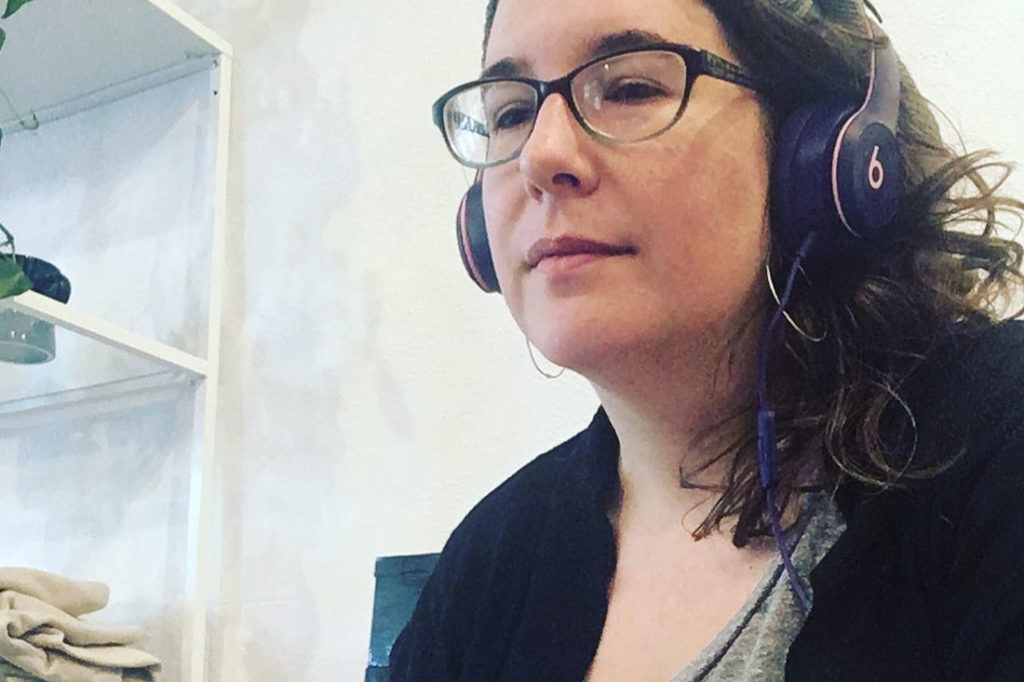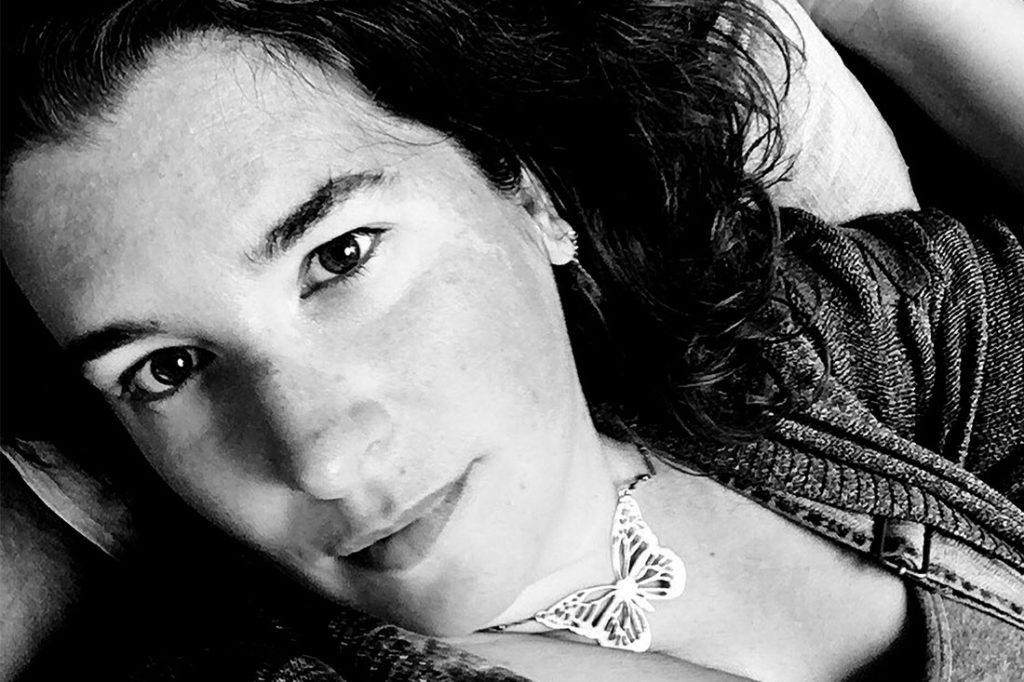I’d go to work, then immediately collapse into bed afterward. Then came the debilitating migraines. I’d lived with migraines for much of my life, but these were incessant and unresponsive to my normal medications. Still, I pushed through. I assumed the stress of transitioning to a new job was wearing me down, that maybe I’d taken on too much and just needed a few days of good rest.
But then it became harder and harder to get up in the morning. This was more than just tired; this was an exhaustion that made it so I couldn’t think, couldn’t speak, couldn’t move my muscles. It hurt to sit up, much less stand and go to work. My job required careful attention, but I could barely focus. Then came the tremors. My body began to shake, muscles spasming, causing me to erratically dance to a song no one could hear. My joints locked up and my bones felt like they were on fire. I went to work late. I left work early. I called out more days than I showed up.
After only a handful of months in my dream career, the job I’d been working toward my entire adult life, I had to quit. As I lie in bed, exhausted, in pain, my body wracked with tremors, I grieved. I didn’t understand why this was happening. I felt like my body was failing me.
I saw doctors, drove hundreds of miles for specialized testing, spent hours in the emergency room, tried handfuls of medications and supplements. My neurologist had me start working from home, only four hours a day, then two. My rheumatologist told me even that was too much. As much as I fought it, the truth stared at me unforgiving: I was disabled.
* * *
Buried among other childhood memories in the bottom of a cedar chest that sits at the foot of my bed rests a red spiral notebook from when I was 11 years old. Page after page is filled with faded penciled words—poems, stories, journal entries. Opening that notebook transports me.
As a child, my parents used to chide me from the front seat of the car: “Look up, Angie! You’re missing the view!” Road trips, be they across multiple states or simply to the store, found me engrossed in a book or a notebook. I wasn’t worried about missing the view—words were where my world came alive.
I have always been mesmerized by words, always felt the power they have. I used to read stories to my Cabbage Patch dolls and imagine myself a famous writer, taking calls on a blue plastic phone from imaginary clients commissioning me to pen an essay for them.
Yet, as with many children whose dreams are to become astronauts, ballerinas or the president, my dream of becoming a writer faded with time. “What exactly are you going to do with an English degree?” my uncle jokingly asked when, as a teenager, I told my family of my intended course of study. I figured he, and all the other people who asked similar questions, were right. I turned to another way I could be immersed in words but actually make a living. I became a teacher.
Early on in my training as an educator, I spent a few months at Green Hill School, a juvenile correctional facility in Washington state. It was there that I discovered that as passionate as I was about words, I was nearly just as passionate about helping others grow through education. Specifically, I wanted to work with incarcerated individuals to help them prepare for release. I devoted myself to this field, writing my master’s thesis about education for incarcerated populations, teaching at juvies and working as a parole officer.
Then, after over a decade of work, an opportunity presented itself that felt like a dream come true. I was to train to be an assistant director of correctional education, overseeing the education programs for a maximum-security prison in Washington as well as a minimum security work camp and a county jail. I was thrilled. All the training, education and work experience of the past 15 years was culminating in a job I felt passionate and excited about, one I felt made to do.
“Starting in January, I’m going to prison!” my social media post read. My body had different plans.
* * *

I tried to process all the emotions that came with a drastic change in my abilities, I turned to the one thing that had always been there for me: words. I never stopped writing, but it was something I did in my free time, as a hobby—a poem appearing when I felt inspired, or an essay filling the page when I went through something particularly meaningful. Words had always been present, but they’d not been a central part of my life for years. Faced with a complete shift in the look and feel of daily life, I began to write again, filling notebooks with poems about pain, journal entries about depression, long rambling pieces questioning what my life would look like now.
In an interview with NPR, poet Gregory Orr once said: “When I write… I process experience. I take what’s inside me—the raw, chaotic material of feeling or memory—and translate it into words…. Before, I was powerless and passive in the face of my confusion, but now I am active: the powerful shaper of my experience.”
As words spilled from me, hope replaced desperation. With words I processed the fear, mourning and frustration and found power and hope in its place.
Slowly, as more pages filled with scrawled purple ink, I began to see that what originally felt like a tragedy wasn’t. Yes, becoming disabled meant a major change in my life and my abilities. It meant that I no longer could work in the field I thought I was meant to work in. It meant my parenting looked different and that a lot of the hobbies I’d once enjoyed were no longer accessible to me. But where doors closed, other ones slowly creaked open. Peering through them, I could see a future that I would not have to grieve, but could celebrate.
In 2011, Paralympic bronze medalist and motivational speaker Amy Purdy gave a TED Talk in which she recounts asking herself, after having both legs amputated due to an illness, “If my life were a book and I were the author, how would I want the story to go?” I asked myself the same question. My disability had drastically altered my life, but this presented an opportunity not everyone gets: the chance to completely rewrite the future.
I pulled out that red notebook with its pages full of adolescent thoughts and emotions and placed it next to new notebooks. I remembered my childhood dream, the one where my words reached the hearts of people and moved them the way words had always moved me. My life, reimagined, began that day.
I sent my words out into the world, but I didn’t think anything would necessarily come of it. Weeks later, they appeared online for anyone to read. My former dream career in correctional education (and all the related jobs leading up to it) provided happiness in caring for others and satisfaction in being good at my job. But it paled against the sheer excitement and fulfillment of seeing my words published. I was—I am—as I’d always dreamed of as a young child, a writer.
* * *
The more I write, the more fulfilled I feel. Every message from a reader who can relate to the words I’ve shared fuels me. “Thank you for saying all the things I wished I could have said but didn’t have the words or energy to express,” wrote one reader. This is the power of words: to transform, to heal, to connect. With each word I write, not only do I know myself more, but I also relate to others and build community with complete strangers. As Orr says: “[Others’ writing] gives me hope and courage, because I know that they survived, that their life force was strong enough to turn experience into words and shape it into meaning and then bring it toward me to share.”
Today I write from my bed, having spent a good portion of the day sleeping off the fatigue and pain caused by my chronic conditions. I lie on a heating pad. My bedside table is covered with various mugs and water bottles above an assortment of pill bottles and tinctures in the drawer. But there, among all those things that say “disability” are also three notebooks in a pile, a pen atop them, waiting for me to continue rewriting my world, reimagining my future, propelling that childhood dream and turning hard moments into blessing after blessing after blessing.
This article originally appeared in the May/June 2022 Issue of SUCCESS magazine. Photos courtesy of Angie Ebba.






